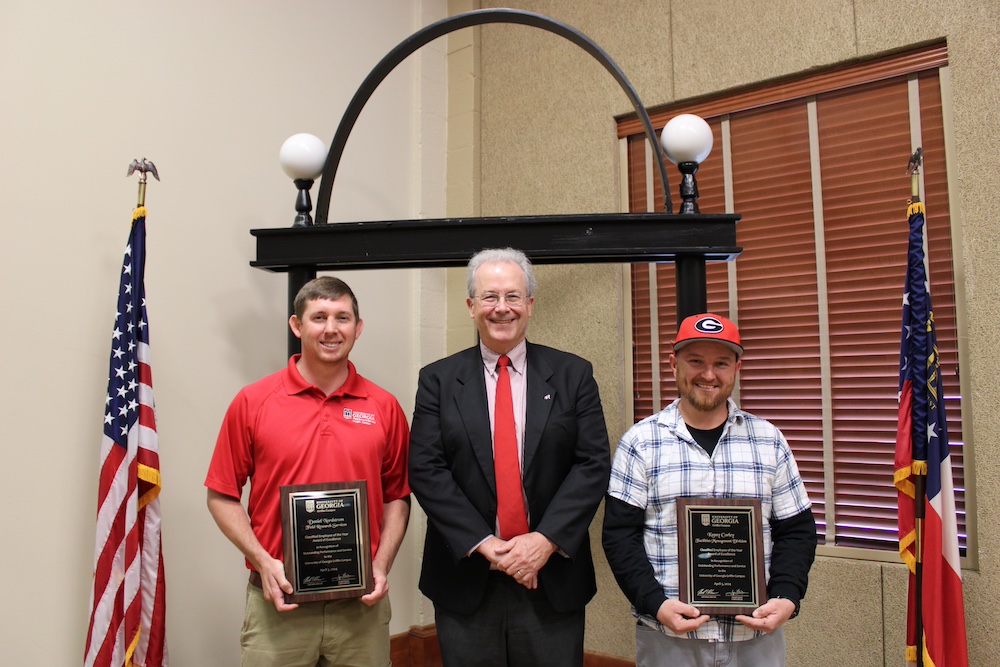By Brad Haire
University of Georgia
"(Georgians) can grow it here, convert it here and use it and export it when we have plenty for ourselves," Perdue said during the opening session of the Georgia Bio-energy Conference at the University of Georgia Tifton Campus Conference Center.
The three-day conference brought together national and international speakers to talk about the current and future state of global energy and biofuel supplies, government energy policies and Georgia crops that can be converted to fuel.
Conference vendors displayed trucks and tractors fueled by ethanol and biodiesel made from Georgia-grown commodities like peanuts, soybeans, peaches, wheat and pine trees.
Georgia can grow homegrown energy and add value to farmers' crops, Perdue told close to 500 participants. "I hope this conference can continue the ideas of how we can harvest that," he said.
By promoting alternative fuels, the United States can ensure fuel stability and reduce its dependancy on foreign sources of oil, Perdue said.
"If we can grow our own fuel, why would we turn to dictators and countries that pledge support for terrorist regimes," he said.
Georgia is moving forward, he said. The state's research universities must continue alternative fuel research. But they need "to scale it up" from the lab and move it to practical commercialization.
Once this happens, he said, the state can create a retail distribution system to meet consumer demands.
More than $1 million in state and private funds have fueled the Biorefining and Carbon Cycling Program in the UGA College of Agricultural and Environmental Sciences, he said. He also touted Georgia Tech research that converts pine to ethanol.
Last year, a handful of refineries in Georgia produced about 3 million gallons of ethanol and biodiesel, he said. But they exported most of that out of the state.
The Georgia Environmental Facilities Agency is working on the state's first comprehensive state energy plan, to be completed by December, Perdue said. It will create a roadmap to affordable, reliable, environmentally responsible energy sources for Georgia.






